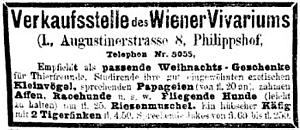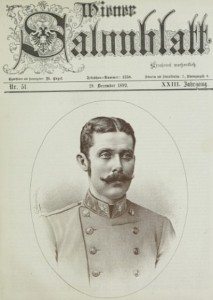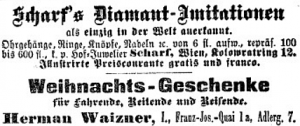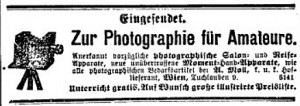Our national hymn, the Egyptian and the British anthem rang out from the afterdeck when we departed from the harbour at 8 o’clock in the morning and entered into the Suez Canal. The Northeast wind continued to blow; but the weather was fine and the thermometer showed 22° Celsius in the sun. The passage through the Canal does not offer beautiful impressions of the landscape but is interesting nevertheless because of its full desert character on both the African and Asiatic shores. On the right as well as on the left there is nothing but sand, glimmering yellow sand in which from time to time meagre grey-green bushes appear. On both sides a bare, deserted plain continues seemingly without end, often the place of a treacherous Fata Morgana.
The first 20 kilometres one proceeds along Lake Menzaleh, separated only by a broad dam from the canal. Those who haven’t see it themselves will not be able to imagine the multitude of water foil that is milling around Lake Menzaleh during this time of the year: Thousands upon thousands of flamingos are standing immovable in the water, creating rose red walls; in between are flying large flocks of ducks and grebes while staid pelicans with imperturbable persistence watch for fish or fly lumberingly over the water. Most conspicuous are the huge number of sandpipers and plovers which appear, swift as an arrow flying from here to there, depending on the turns of their flights, as silvery glitters in the sun or as dark cloud and thus resemble a glittering silver band that flies in the sky.
Having reached the end of Lake Menzaleh, the ship continues at half speed between numerous buoys along the narrow Suez Canal, that modern wonder of the world created by human energy and endurance in a relatively short span of time. Every 10 kilometres, there are passing points and signal stations, small neat looking houses adorned with verandas and enclosed by little green gardens. Officials of the canal company are living there while guarding and policing the canal. Signals for the ships are hoisted on large masts. Large excavation machines are labouring assiduously during the whole year to keep the canal bed in order as the pressure from the bank and the drifting sands deposited from the desert verge to silting up. The natives carry the excavated earth with camels to a deposit farther away – and there are important restoration works going on without interruption which explains the rather high fees ships have to pay for passage. Our ship register was reduced by a fee of 13.000 francs.
The Suez Canal company offered the courtesy to considerably speed up our journey by ordering all approaching steamships by telegraph to moor at the passing points to let us pass. This will not have improved the moods of the captains of those ships, so that probably many a strong word escaped from the sailors’ mouth when we passed the impatiently waiting ships at full speed and disappeared out of their view. A large English steamship ran into ground while mooring and was working hard without success with his engine to free itself as long as we were watching.
In the evening, „SMS Elisabeth“ reached Ismailia where the pilot was switched only to continue the journey without interruption. Of Ismailia we only saw a few houses located on the bank and a little vegetation which supplied an agreeable contrast to the monotonous desert. The sun set in horizon colours typical for this place, dark saffron and crimson reds. The large electric projectors were activated and illuminated our route bright as daylight, so that one could distinguish every single buoy from a great distance. In the bitter lake we drove up on an English four mast ship and had to wait for the end of the small bitter lake until three steamships had moored at the next stop. I remained on deck until 11 ’o´clock in the evening as I found it interesting to notice the exchange of the different signals between the stations and the ships as well as observing the skilled pilot, a compatriot from Porto Rè, navigate the ship on its often tortuous course.
Links
- Location: Ismaïlia, Egypt
- ANNO – on 21.12.1892 in Austria’s newspapers. The Neue Freie Presse laments that there are no public but only religious holidays in Austria. While the English commemorate Guy Fawkes Night, the French their revolution and the Italian their constitution day, Austria-Hungary does not do so due to its strange composition of its member states. Still, on 20 December 1892, Austria-Hungary commemorated the 25th anniversary of its new constitution.
- The k.u.k. Hofoperntheater is performing Luigi Manzotti’s ballet Excelsior.



